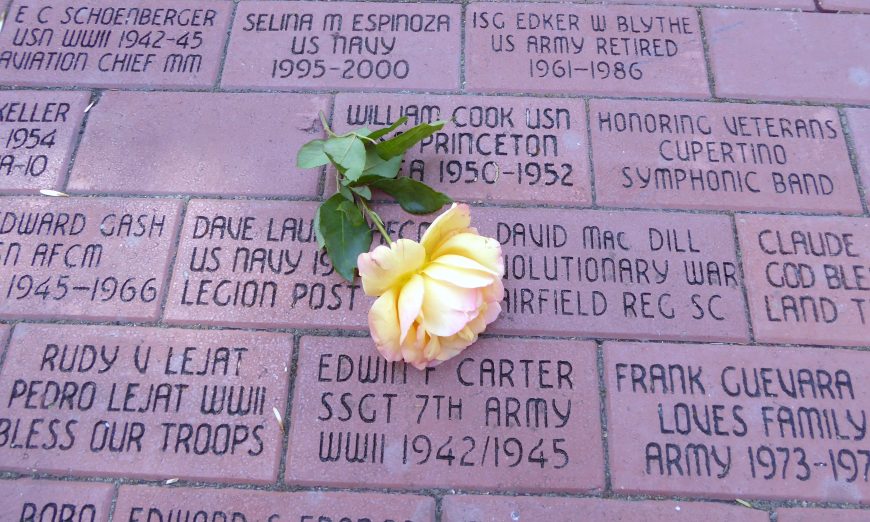As we celebrate the anniversary of the birth of the United States, it’s a good time to remind ourselves that there may not have been a United States without the young immigrants who fought in the American Revolution.
I’d like to tell you about one of them: my ancestor David MacDill (1763-1848), who immigrated to the U.S. as a child and fought in the American Revolution.
He was Scots-Irish, a descendent of the Presbyterian Scots encouraged by King James I of England to colonize Northern Ireland during the 17th century.
Between about 1715 and into the years just before the Revolution an estimated 150,000 Scots-Irish immigrated to the New World. My ancestors, Thomas and Margaret MacDill, immigrated to the American colonies from Ireland in 1772 with their five-year old son, David, and settled in Chester County, South Carolina.
David MacDill, according to the deposition recorded at the military pension office in Washington D.C., “entered service in 1781[he was 18] in Craven County South Carolina in the militia of that state in Captain Adam’s Company of Colonel Lacy’s regiment and General Sumpter’s Brigade, where he was engaged against the tories [sic] until the first of April when he joined the regular army in Colonel McGruf’s Regiment on the Catuba River.”
He received a service pension payment of $54.15 in 1838.
Although 1781 saw the surrender of the British at Yorktown, it began at a low point in the Continental Army’s morale, exemplified by the Pennsylvania Line Mutiny. Enlisting that year demonstrated an act of faith in an unproven idea and in the face of a very successful British campaign in South Carolina. You could call those young men dreamers.
In some states, for example Pennsylvania, up to one in four soldiers was an impoverished recent immigrant, according to a 2010 Smithsonian article, Myths of the American Revolution. Some historians have set the number of Irish-Scots — they were simply called ‘Irish’ then — in the Continental Army as high as 25 percent.
They certainly weren’t affluent, highly-educated professionals bringing bags of cash from abroad. The average Continental soldier was young, single, property-less, poor and in many cases an outright pauper, according to the Smithsonian article.
Scots-Irish soldiers were so prominent in the Revolution that “many British leaders were convinced that they were fighting ‘an uprising of rabble-rousing Presbyterians,'” Matthew Dziennik wrote in a 2014 edition of the Journal of the American Revolution.
After the Revolution, many left South Carolina, migrating west, many to what we now call Appalachia, where they’re known to popular culture as “hillbillies.”
My ancestor was part of this exodus, but he went to Ohio instead.
The subject of a new book by historian David McCullough, Pioneers, the settlement of Ohio was an idealistic enterprise, governed by the Northwest Ordinance. It outlawed slavery, embraced religious freedom — before it was enshrined in the Constitution — and stipulated that free public education was to be part of any new settlement.
David MacDill married in 1788 and settled in Israel Township, Preble County, Ohio in 1806. Because the established church tolerated slavery, these Scots-Irish pioneers started the anti-slavery Hopewell Church, where my MacDill ancestors are buried. His entries in the Census don’t record that he was an immigrant.
We can only theorize about whether the Revolution could have been won without these immigrant soldiers, but it isn’t idle theorizing to say that it took a lot of dreamers and big dreams to turn a disorganized rebellion into the power that defeated one of the most powerful empires of the time, won World War II and rebuilt the war-ravaged Europe.
We would be immeasurably poorer without our dreamers of the past, and we will impoverish our future if we bar the door to the David MacDills of today and tomorrow.






